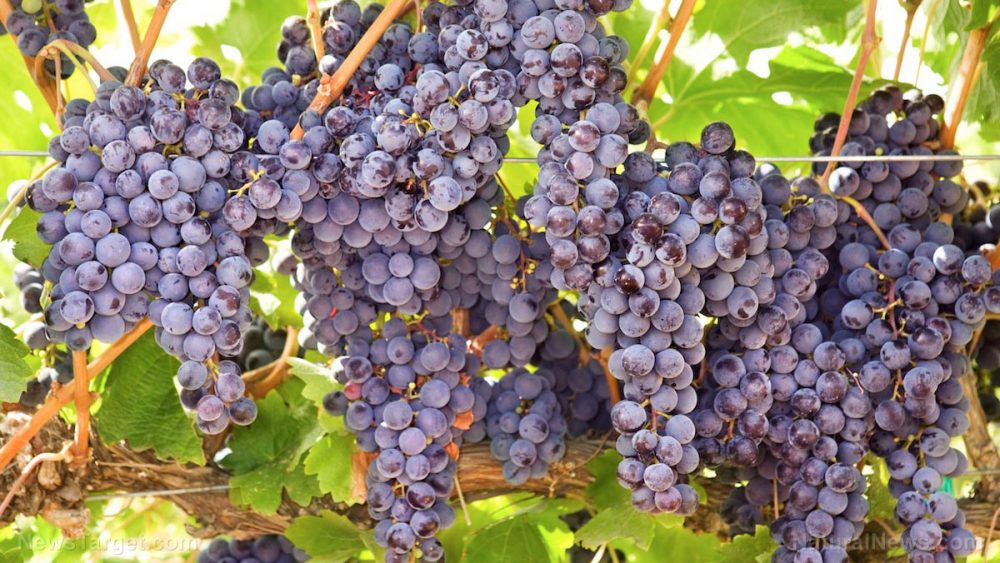Grape-derived compounds found to reduce severity of stress-induced depression
02/21/2018 / By Michelle Simmons / Comments
Views

Advertisement
A new study published in the journal Nature Communications has found that compounds found in grapes can help prevent depression caused by stress.
- The researchers of the study looked at compounds found in grapes as therapeutic agents for the treatment of depression.
- They examined the effect of a combination of three polyphenols found in grapes in mouse models.
- They used the mixture called a “bioactive dietary polyphenol preparation” (BDPP), which is made of Concord grape juice, an extract from grape seeds, and trans-resveratrol.
- In addition, they analyzed the effect of two new phytochemicals, dihydrocaffeic acid (DHCA) and malvidin-3′-O-glucoside (Mal-guc), which were derived from metabolizing BDPP.
- BDPP was then given to a group of mice that were chronically stressed.
- Results showed that the compounds enhanced the resilience of mice against stress-induced depression.
- BDPP worked by regulating the plasticity of the synapses of the brain, or the connections between neurons, as well as by regulating inflammation.
- DHCA decreased interleukin 6 (IL-6), which is a pro-inflammatory substance produced by T cells and macrophages to prompt an immune response. It works by epigenetically regulating the non-coding sequence of the IL-6 gene.
- On the other hand, Mal-guc regulated histone acetylation of the Rac1 gene and enabled transcription activators to access the DNA for increased transcription in the brain. This affected the expression of genes accountable for synaptic plasticity.
Overall, the findings of the study suggest that DHCA and Mal-guc, compounds derived from grapes, can help fight off stress-induced depression.
For the full text of the study, go to this link.
Journal Reference:
Wang J, Hodes GE, Zhang H, Zhang S, Zhao W, Golden SA, Bi W, Menard C, Kana V, Leboeuf M, et al. EPIGENETIC MODULATION OF INFLAMMATION AND SYNAPTIC PLASTICITY PROMOTES RESILIENCE AGAINST STRESS IN MICE. Nature Communications. 2018;9(1). DOI: dx.doi.org/10.1038/s41467-017-02794-5
Tagged Under:
depression, DHCA, food science, goodmedicine, goodscience, grape compounds, grapes, Mal-guc, stress
100% Fresh Food News, Right at Your Fingertips!
Find out everything you need to know about clean and healthy eating when you sign up for our FREE email newsletter. Receive the latest news on all the top superfoods, recipes, natural remedies, diets, food tips, and more!
Your privacy is protected. Subscription confirmation required.
Related Articles
Advertisements







